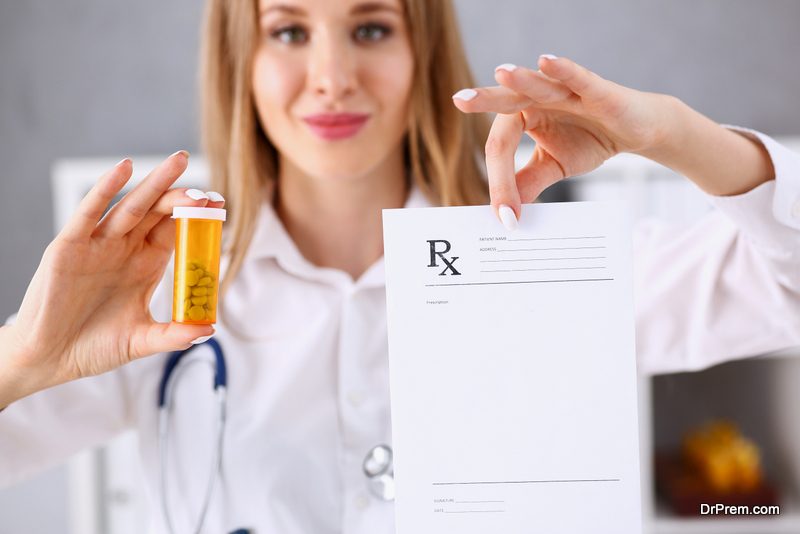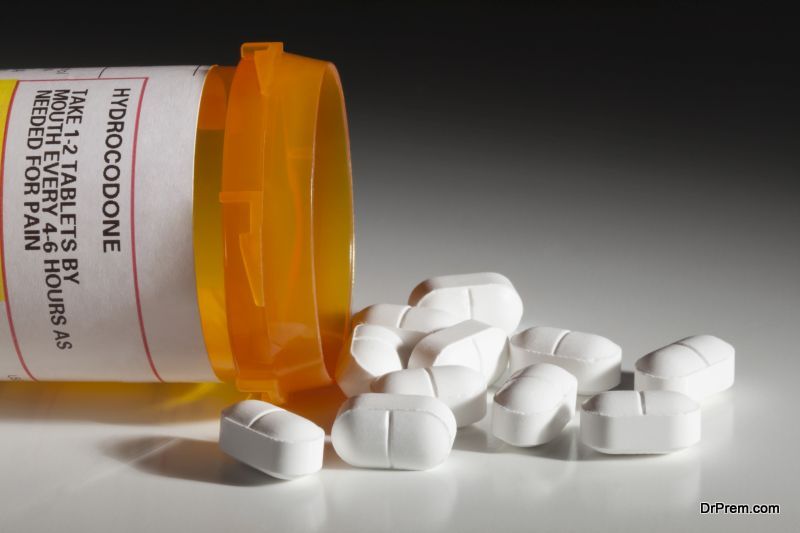Prescription medications are as common as multivitamins and are used to treat a long list of different ailments and conditions. Certain medications treat chronic conditions such as high cholesterol or blood pressure, diabetes, and heart issues. Other medications are prescribed to treat a short-term condition such as an illness or pain due to surgery or other injury. Regardless of why your doctor prescribed you the medication, there are several things to consider before filling the prescription. You need to be completely comfortable with what medication you’re taking, and need to ask questions and gather knowledge. Check out 8 questions to ask your doctor about your current medications.
1. Why Do I Need It?
 For those who are opposed to taking prescription drugs or simply prefer not to, this is an important question to ask your doctor. Find out exactly why you need the drug and why they’re prescribing it. In some instances, a drug serves multiple purposes. Understanding why your doctor prescribed a certain drug and what it’s intended to do, will make you more comfortable and may help you accept and understand why you need it. Feeling informed and at ease with the reason behind the medication will make it easier for you to take it as prescribed.
For those who are opposed to taking prescription drugs or simply prefer not to, this is an important question to ask your doctor. Find out exactly why you need the drug and why they’re prescribing it. In some instances, a drug serves multiple purposes. Understanding why your doctor prescribed a certain drug and what it’s intended to do, will make you more comfortable and may help you accept and understand why you need it. Feeling informed and at ease with the reason behind the medication will make it easier for you to take it as prescribed.
2. How Will it Make Me Feel?
One of the main reasons people shy away from taking prescription drugs is because they worry about how it might make them feel. Some people don’t want to feel “drugged”, “high”, or “dizzy”. This is a real concern for many patients, so asking your doctor how a specific medication will make you feel is extremely important. It also helps prepare you for potential side-effects. This question also helps you gather information about the results you’ll experience. Some medications deliver instant relief from your condition, while others will show improvement over time. When you know exactly how the drug works and how soon you should feel the effects, you can determine whether or not it’s effective or if the prescription should be reevaluated.
3. Are There Any Side-Effects?
 Side-effects are another major concern for many people when it comes to taking prescription medications. In some cases, the potential side-effects of a medication may actually be worse than the condition it’s treating. No medication comes without risk of potential side-effects but most are extremely rare or mild. Knowing what these side-effects are will help you to identify them if they should arise. Most medications are crafted to have the desired effect without any negative symptoms, but the risk is always present.
Side-effects are another major concern for many people when it comes to taking prescription medications. In some cases, the potential side-effects of a medication may actually be worse than the condition it’s treating. No medication comes without risk of potential side-effects but most are extremely rare or mild. Knowing what these side-effects are will help you to identify them if they should arise. Most medications are crafted to have the desired effect without any negative symptoms, but the risk is always present.
4. Will it Interact with Any Other Medication I’m Taking?
Before taking any new medications, make sure that your doctor knows the name, dosage, and frequency of any other medications you’re taking. This will help determine what medication your doctor prescribes, since certain medicines negatively interact with others. In some cases, one medication might actually prevent another one from working properly. Always be upfront and honest with your doctor about the medications you’re taking, even if that includes CBD or medical marijuana, which are commonly used to treat conditions like insomnia, anxiety, and pain. Learn more about CBD and its uses here.
5. What Dosage Do I Need and How Should I Take It?
 The medication your doctor prescribes won’t be effective if you don’t take the correct dosage at the correct time. Ask your doctor how much of the medication you need, how many milligrams it is, and how often you need to take it. Pharmacists and doctors create these dosage and ingestion instructions so that the drug provides the greatest benefit to patients, which is why it’s so important that you follow the directions carefully. If the dosage you’re taking seems like too much or too little, notify your doctor immediately.
The medication your doctor prescribes won’t be effective if you don’t take the correct dosage at the correct time. Ask your doctor how much of the medication you need, how many milligrams it is, and how often you need to take it. Pharmacists and doctors create these dosage and ingestion instructions so that the drug provides the greatest benefit to patients, which is why it’s so important that you follow the directions carefully. If the dosage you’re taking seems like too much or too little, notify your doctor immediately.
Not taking medications according to their specific instructions can be very dangerous. You can potentially overdose if you take too much of it. Taking too little means your body won’t receive the amount of medication it needs to treat your condition and you may experience prolonged suffering or discomfort. The only time it’s recommended you stop taking medications without first contacting your doctor is if severe side-effects occur. Even then, you should call your doctor right away to discuss a future plan.
6. How Long Will I Need to Take It?
One of the biggest misconceptions about medications is that you can stop taking them as soon as your condition improves or symptoms subside. This isn’t true and doing so may actually cause serious complications. Not only is it important to follow instructions regarding dosage and frequency of the prescription but also the duration. Your doctor may provide you with several refills and instruct that you take the medicine daily until further notice. This is common for medications treating chronic conditions like heartburn, migraine headaches, and high cholesterol. But if you’re prescribed an antibiotic to treat an infection or illness, it’s important that you finish all of the medication. All too often, people start feeling better and stop taking their antibiotic, which leaves the potential for a relapse of the condition.
7. Do Any Foods or Substances Interact With the Medicine?
 Not only do certain medications need to be taken with food to avoid an upset stomach, but some may actually negatively interact with certain foods, drinks, and other substances. A common recommendation is to avoid consuming alcohol while taking certain medications. Not only can this combination cause nausea, vomiting, and drowsiness but it may lead to internal bleeding, difficulty breathing, and heart complications. Other side effects and interactions are mild, but it’s still important to discuss the possibilities with your doctor since some interactions can reduce the intended benefits.
Not only do certain medications need to be taken with food to avoid an upset stomach, but some may actually negatively interact with certain foods, drinks, and other substances. A common recommendation is to avoid consuming alcohol while taking certain medications. Not only can this combination cause nausea, vomiting, and drowsiness but it may lead to internal bleeding, difficulty breathing, and heart complications. Other side effects and interactions are mild, but it’s still important to discuss the possibilities with your doctor since some interactions can reduce the intended benefits.
8. What Happens if I Miss a Dose?
Even for those patients who are extremely diligent with taking their medications on time, missed doses happen. And while simply taking the medicine when you remember or doubling-up on your next dose is sometimes acceptable, this isn’t always the case. Doubling up on a certain medication can lead to unwanted side-effects or complications. It’s important to ask your doctor or pharmacist how to handle missed doses and avoid them whenever possible. Setting an alarm or taking your medication at the same time each day can help you stay on schedule.
Medications do amazing things for our physical and mental health. Although some people prefer not to ingest medicines, some are necessary. Whenever you’re prescribed a new medicine, be sure to gather as much information as possible in terms of proper use, side-effects, and dosage. The more knowledge you have, the more beneficial and positive your experience will be.
Article Submitted By Community Writer




